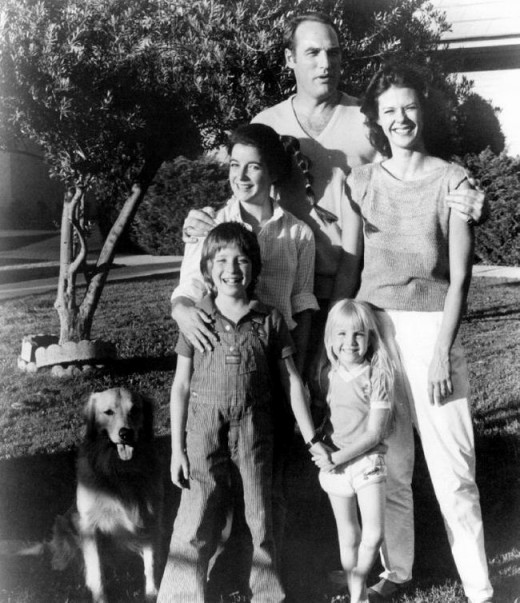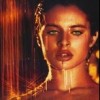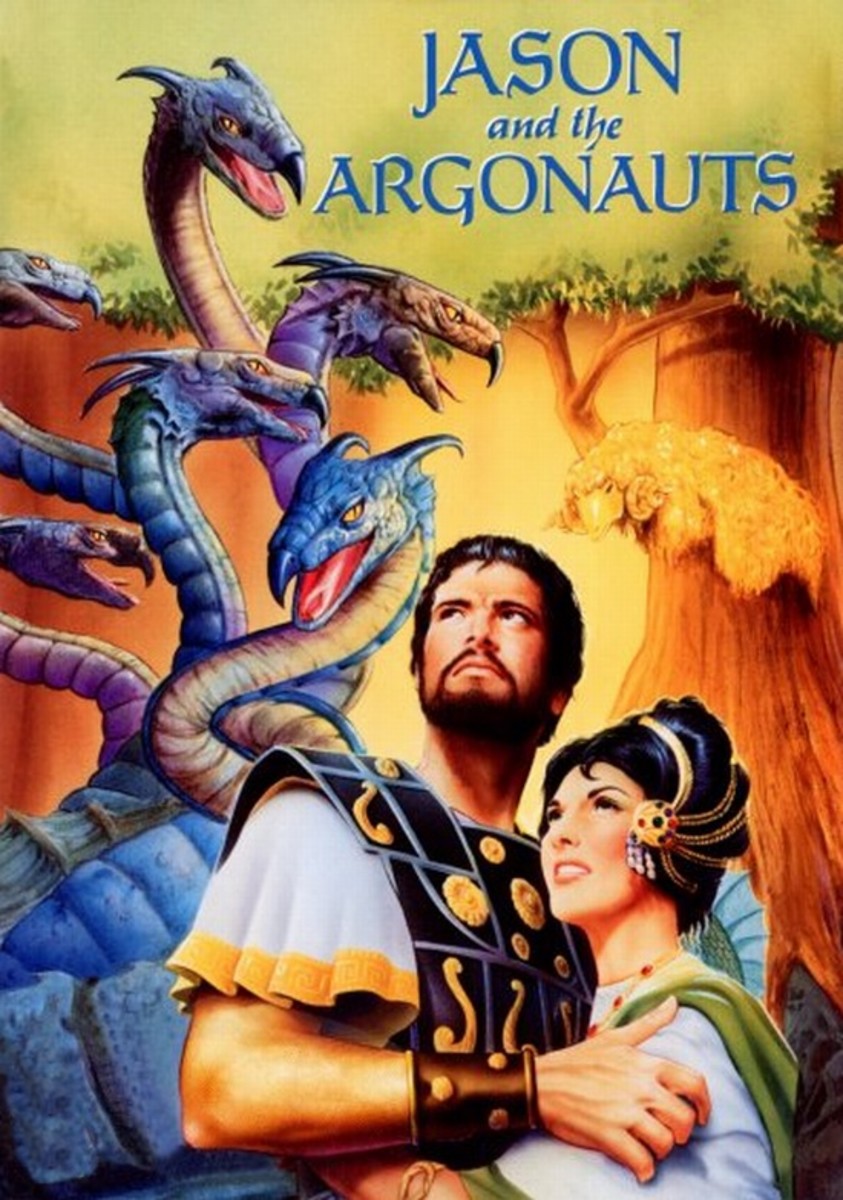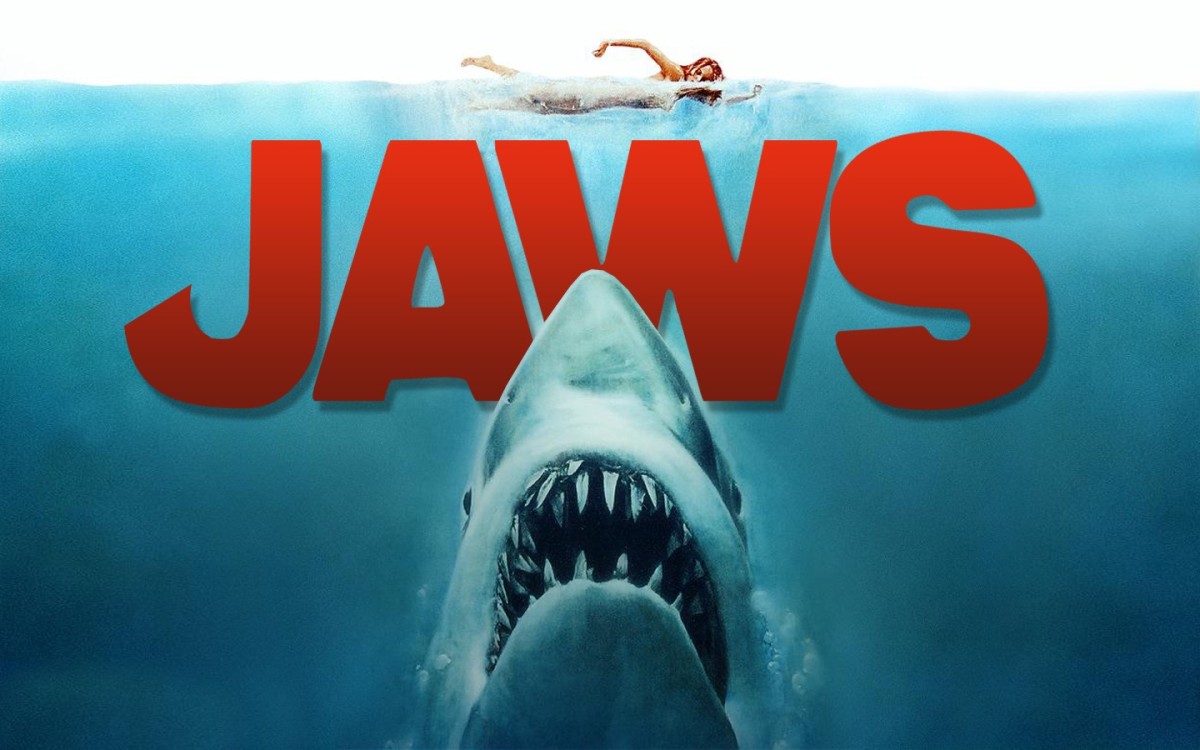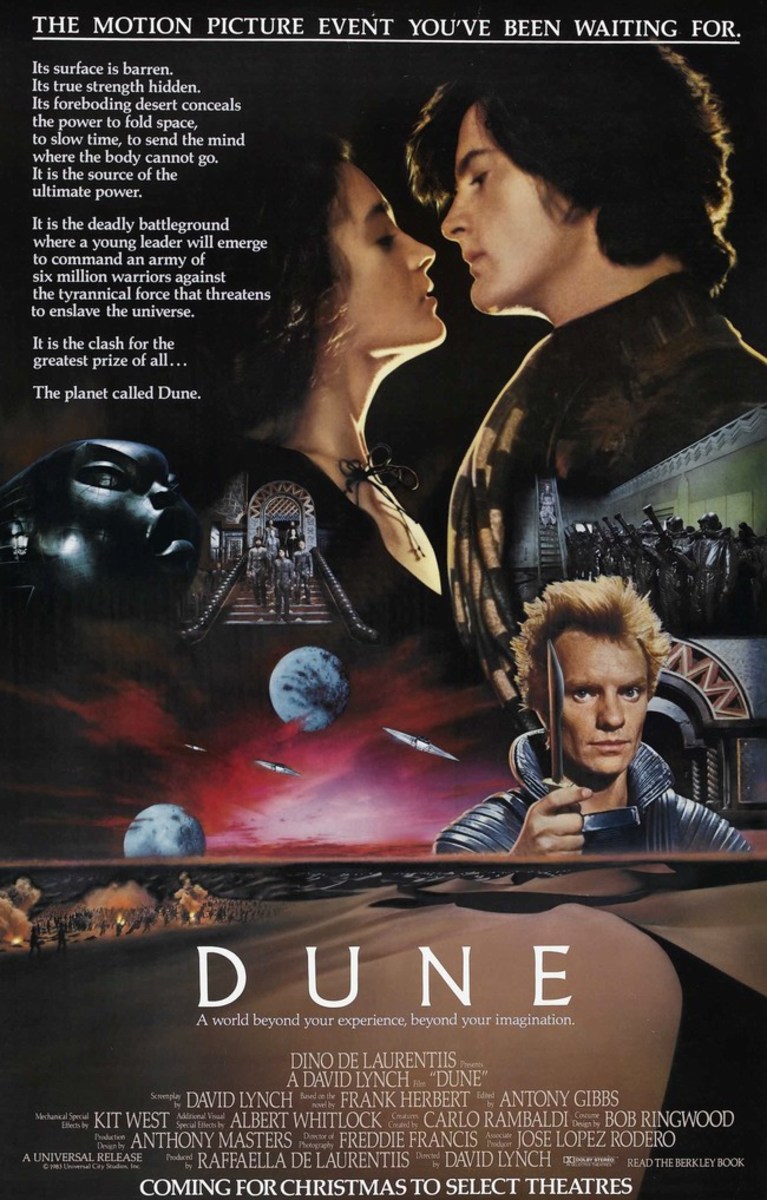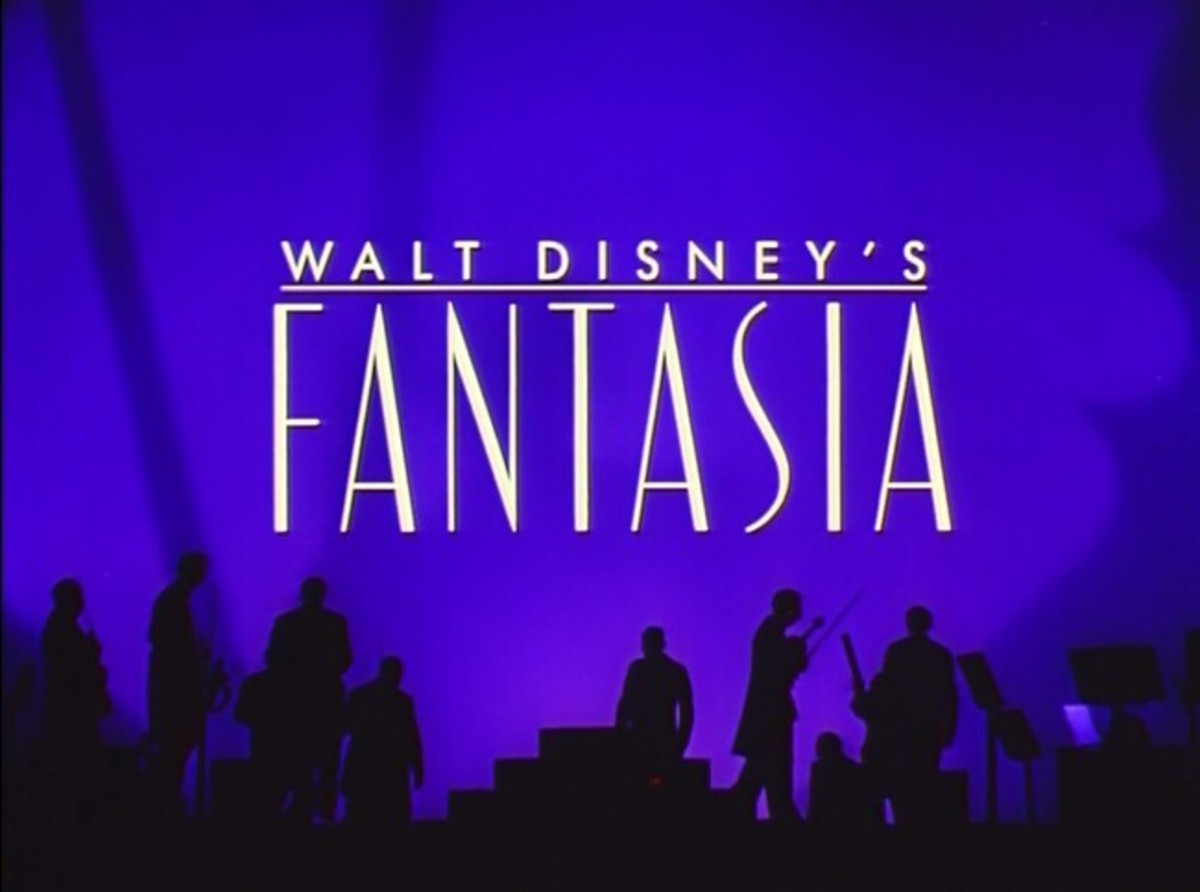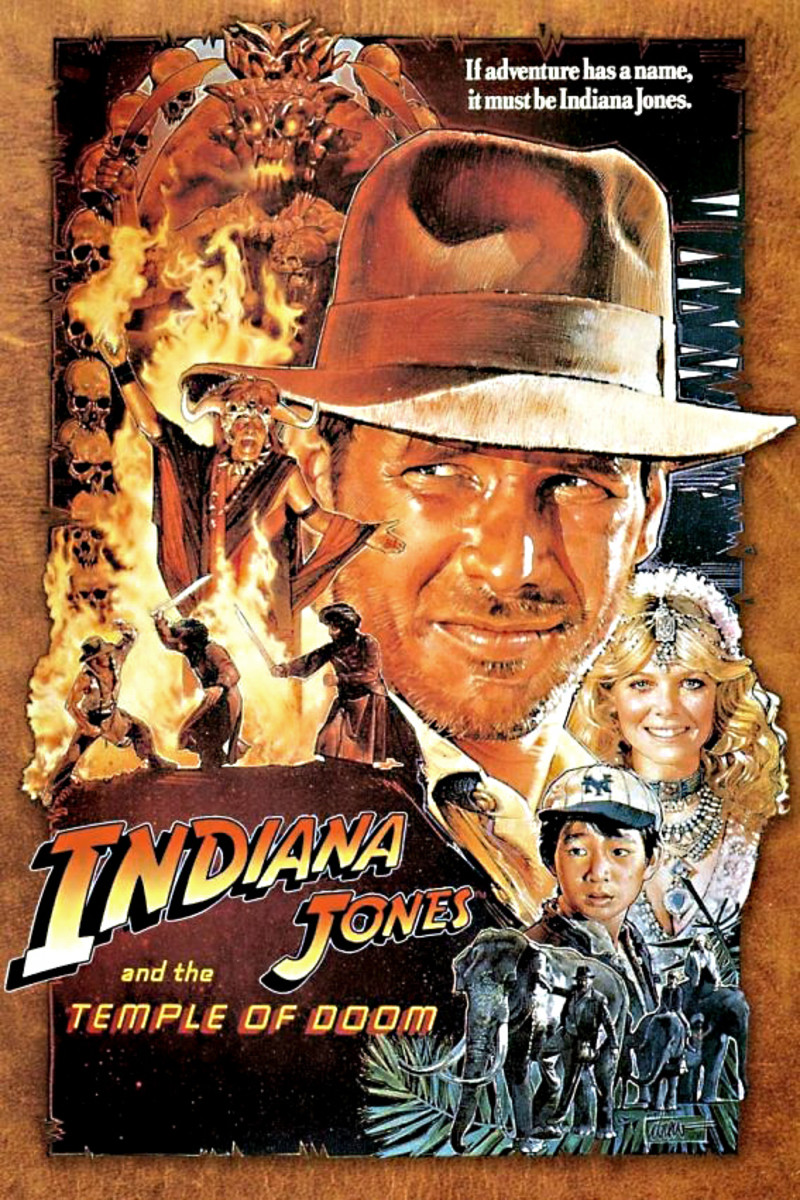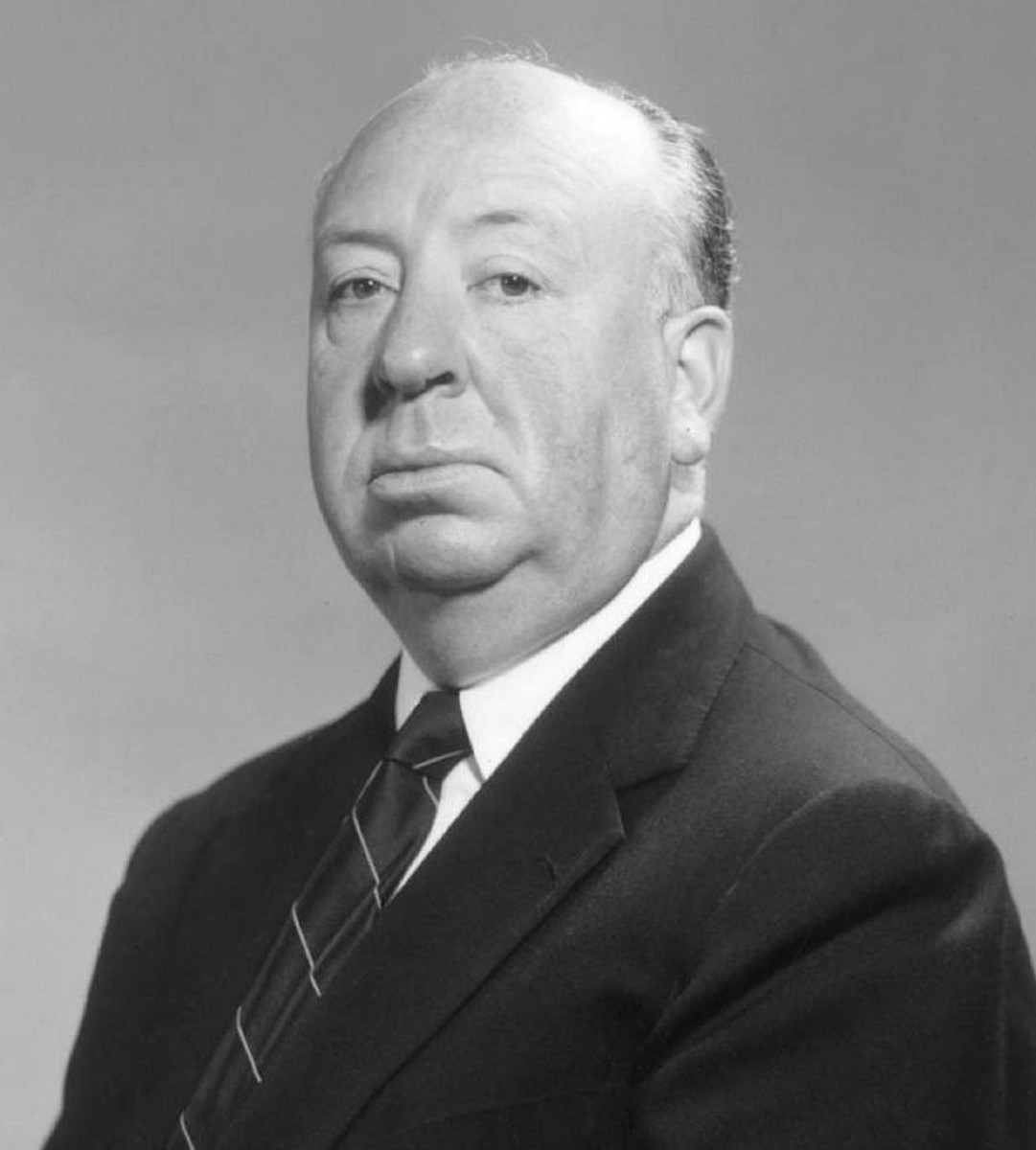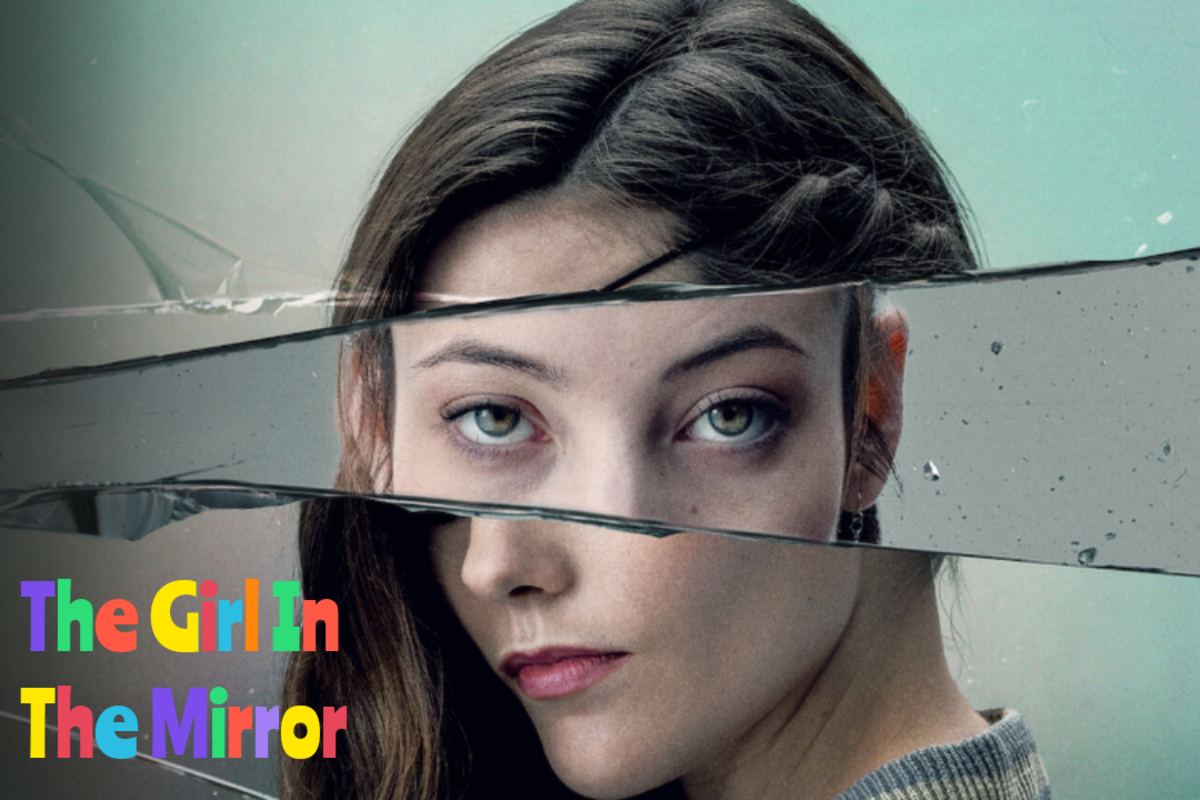Poltergeist (1982) - Illustrated Reference
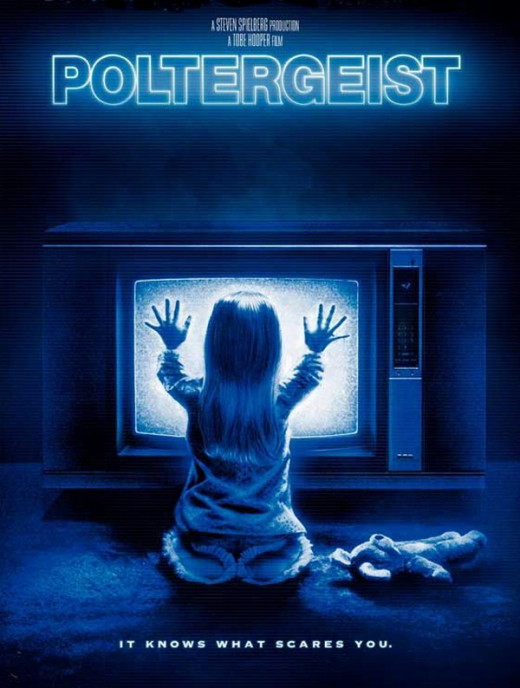
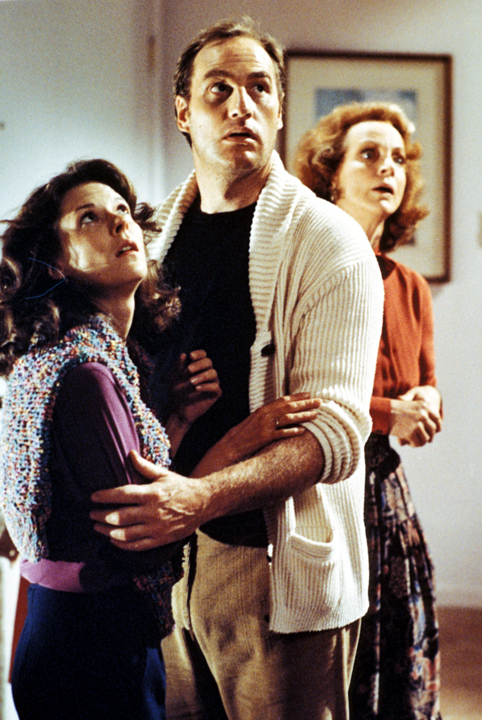
Poltergeist was directed by Tobe Hooper and premiered on the 4th of June 1982. Starring Craig T. Nelson, JoBeth Williams, Beatrice Straight, Dominique Dunne, Oliver Robins, Heather O’ Rourke, James Karen and Zelda Rubinstein. Screenplay by Steven Spielberg, Michael Grais and Mark Victor. Music by Jerry Goldsmith. 114mins.
A family home is plagued by poltergeists, seemingly friendly at first it turns serious when the youngest daughter is abducted.
Poltergeist was produced by Steven Spielberg and there has been some controversy as to how much of the film was actually directed by Tobe Hooper. Some cast members have said that Hooper was on the set but it was Spielberg who was calling all the shots.
The Hollywood Reporter printed an open letter from Steven Spielberg to Tobe Hooper in which he writes - “Regrettably, some of the press has misunderstood the rather unique, creative relationship which you and I shared throughout the making of Poltergeist. I enjoyed your openness in allowing me a wide berth for creative involvement, just as I know you were happy with the freedom you had to direct it so wonderfully.”
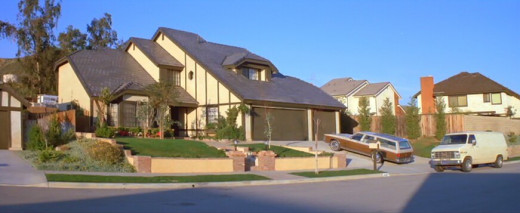
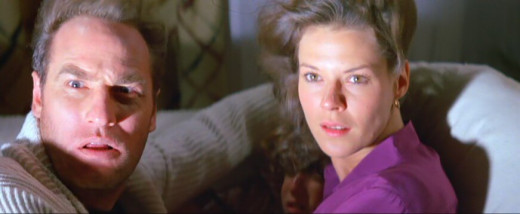
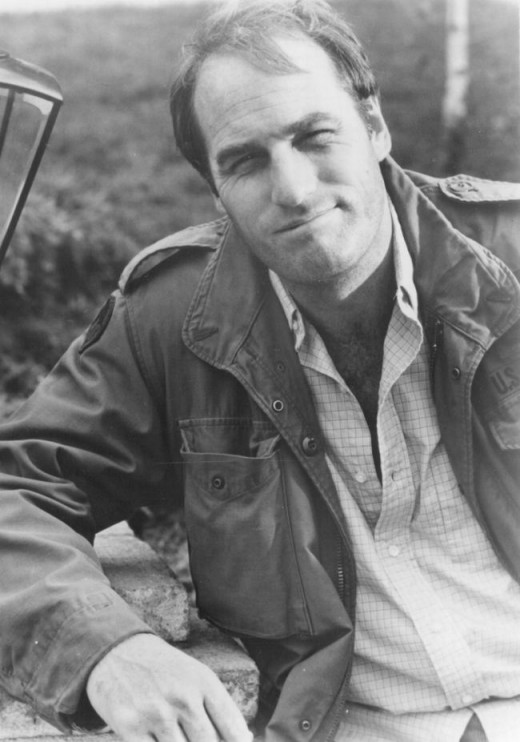
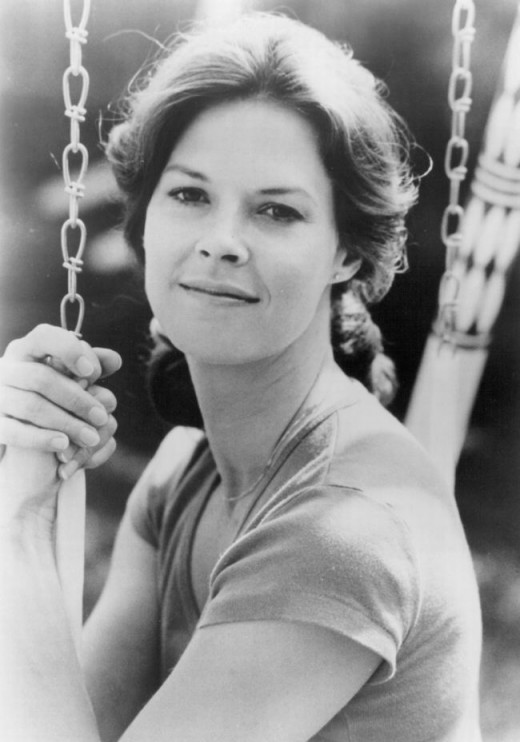
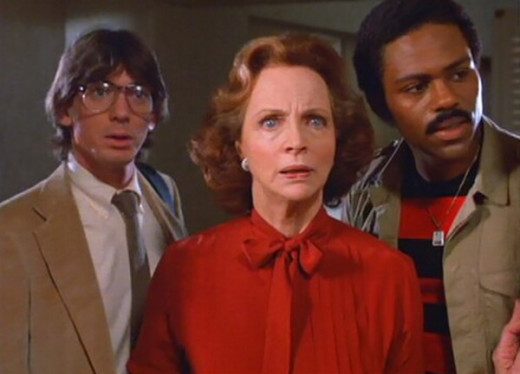
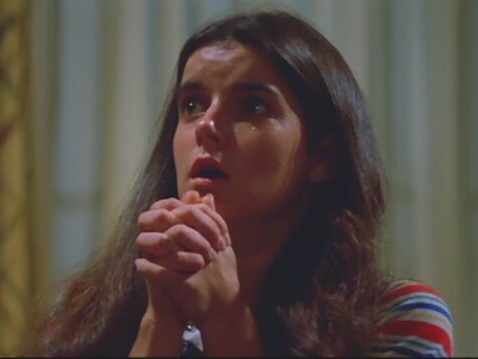
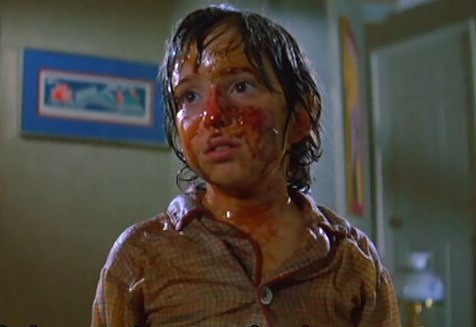
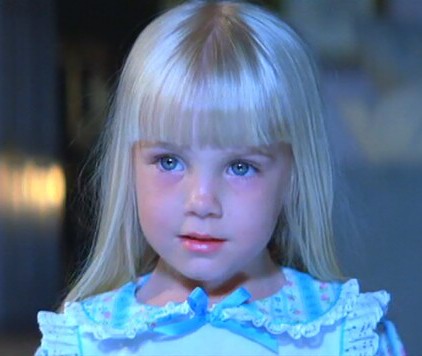
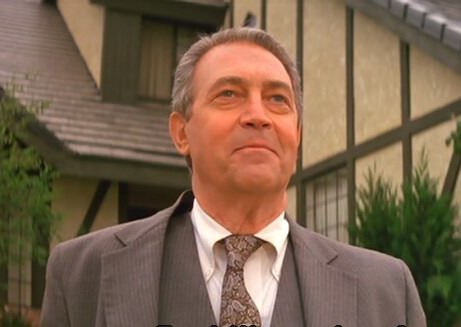
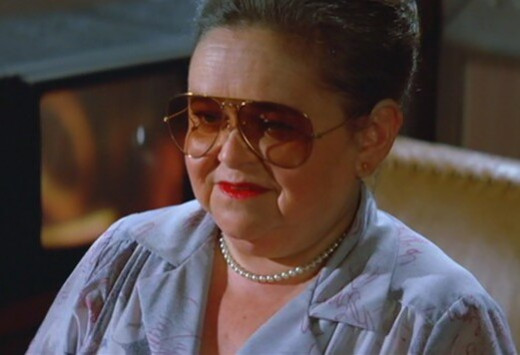
Steve: [shouting at Teague] You son of a bitch! You moved the cemetery, but you left the bodies, didn't you? You son of a bitch, you left the bodies and you only moved the headstones! WHY? WHY?
Craig T. Nelson (1944-) / Steve Freeling
Born in Spokane, Washington, Craig T. Nelson’s films include – And Justice For All (1979), Stir Crazy (1980), The Osterman Weekend (1983), All the Right Moves (1983), Poltergeist II (1986), Action Jackson (1988), Turner and Hooch (1989), The Devil’s Advocate (1997), The Incredibles (2004), The Family Stone (2005) and The Proposal (2009). TV series – Coach (1989-1997), The District (2000-2004).
Diane: Carol Anne - listen to me. Do NOT go into the light. Stop where you are. Turn away from it. Don't even look at it.
JoBeth Williams (1948-) / Diane Freeling
Born in Houston, Texas, JoBeth Williams films include – Stir Crazy (1980), The Big Chill (1983), Teachers (1984), Poltergeist II (1986), Switch (1991), Dutch (1991), Stop! Or My Mom Will Shoot (1992), Wyatt Earp (1994), Fever Pitch (2005) and The Big Year (2011).
Beatrice Straight (1914-2001) / Dr. Lesh
Born in Old Westbury, New York, Beatrice Straight won a Best Supporting Actress Oscar for Network (1976), her films include – The Nuns Story (1959), The Promise (1979), Endless Love (1981), Two of a Kind (1983) and Power (1986).
Dana: WHAT'S HAPPENING?!!
Dominique Dunne (1959-1982) / Dana Freeling
Born in Santa Monica, California, Dominique Dunne was killed by her abusive ex-boyfriend, he strangled her leaving her brain dead and she was taken off life support 5 days later. She was 23. She had appeared on a few TV shows, Poltergeist was her only film.
Oliver Robins (1971-) / Robbie Freeling
Born somewhere in the USA, Oliver Robins films include – Airplane II (1982), Poltergeist II The Other Side (1986) and Man Overboard (2008).
Carol Anne: They're here!
Heather O’Rourke (1975-1988) / Carol Anne Freeling
Born in San Diego, California, Heather O’Rourke’s films include Poltergeist II The Other Side (1986) and Poltergeist III (1988). Tragically Heather died during surgery to repair an acute bowel obstruction, the official report was that she died of a heart attack caused by septic shock brought on by the intestinal stenosis. Heather was just 13.
James Karen (1923-) / Mr. Teague
Born in Wilkes Barres, Pennsylvania, James Karen’s films include – Frankenstein Meets the Space Monster (1965), Capricorn One (1977), The China Syndrome (1979), Frances (1982), Return of the Living Dead (1985), Jagged Edge (1985), Invaders from Mars (1986), Wall Street (1987), Nixon (1995), Thirteen Days (2000), Mulholland Drive (2001) and The Pursuit of Happyness (2006).
Tangina: It lies to her. It tells her things only a child can understand. It's been using her to restrain the others. To her, it simply is another child. To us, it is The Beast.
Zelda Rubinstein (1933-2010) / Tangina Barrons
Born in Pittsburgh, Pennsylvania, Zelda Rubinstein’s films include – Under the Rainbow (1981), Poltergeist II The Other Side (1986), Poltergeist III (1988), Teen Witch (1989), Guilty as Charged (1991) and Southland Tales (2006).
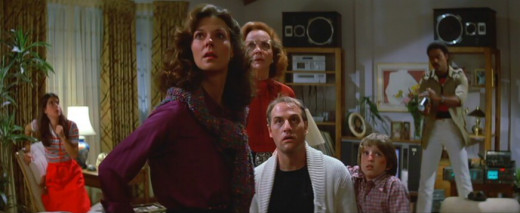
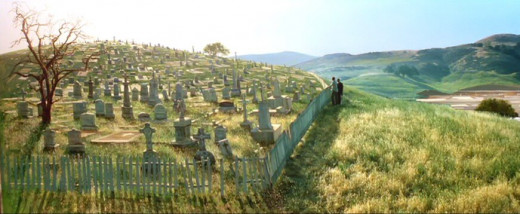
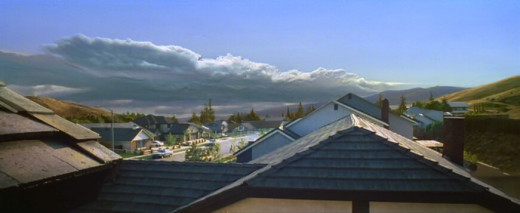
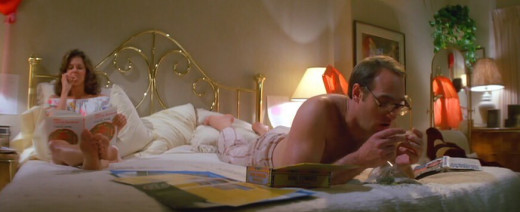
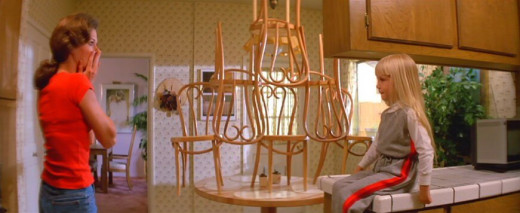
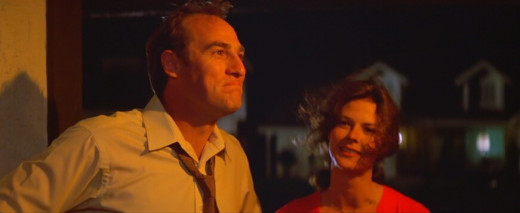
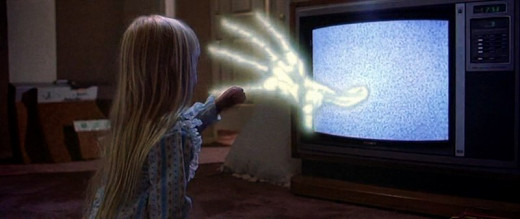
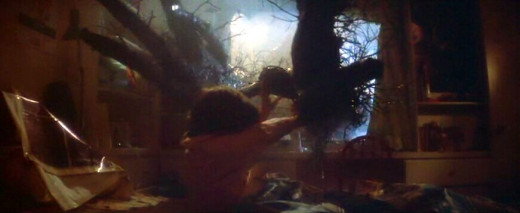
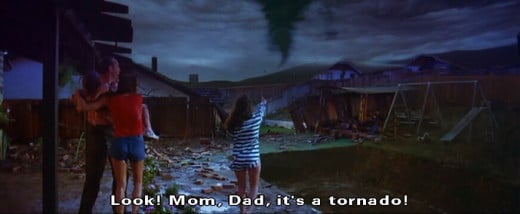
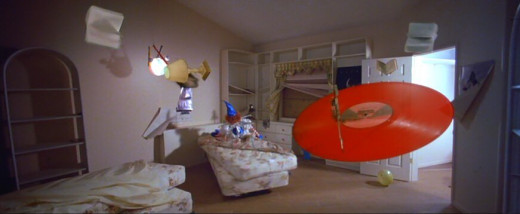
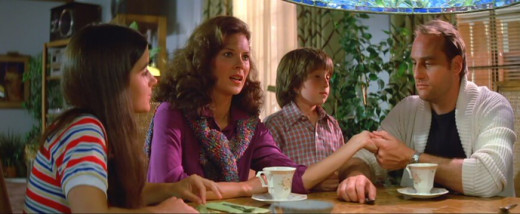
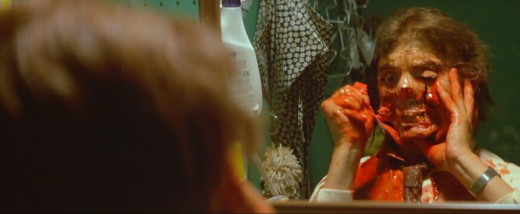
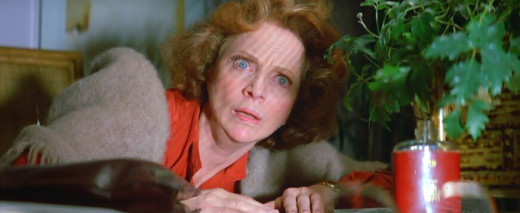
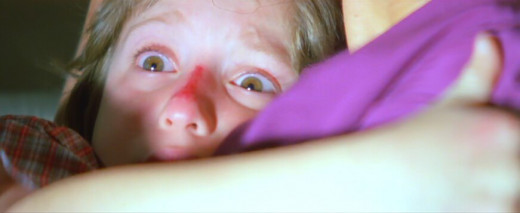
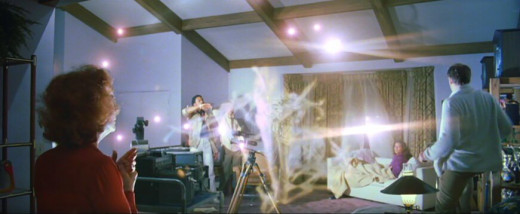
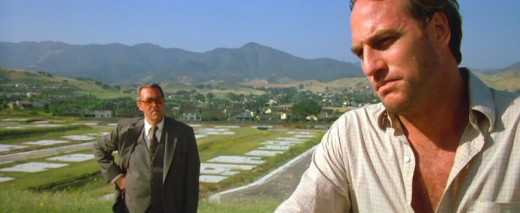
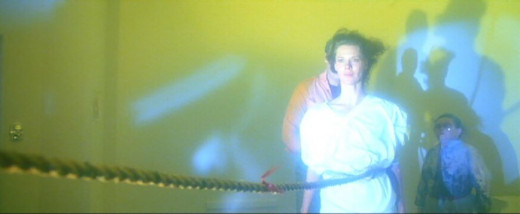
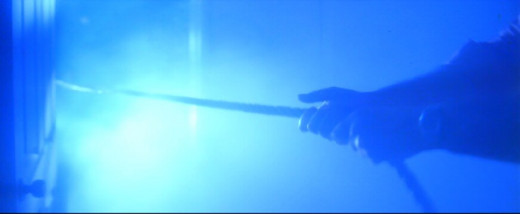
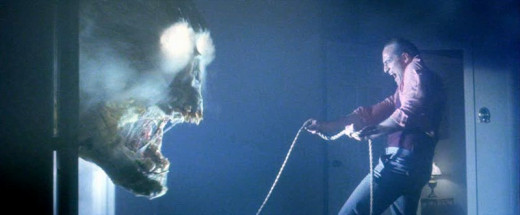
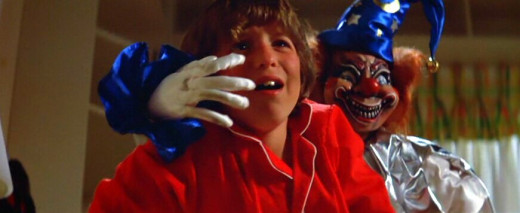
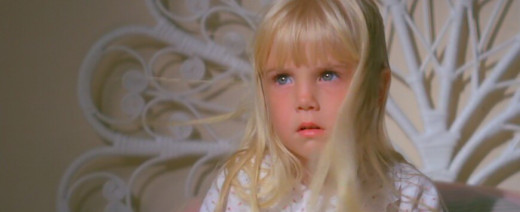
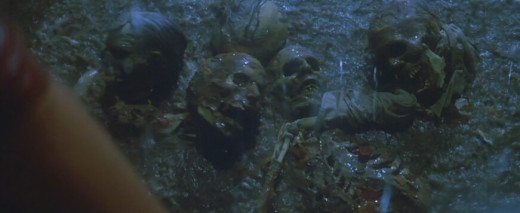
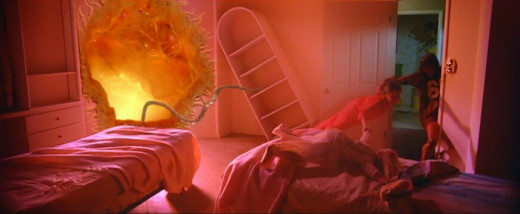
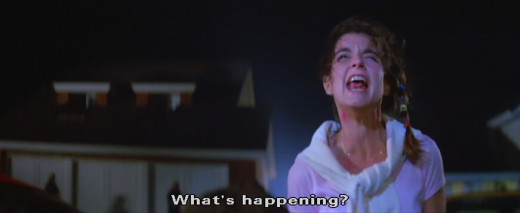
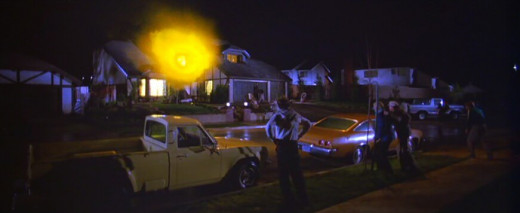
Diane: You were saying about poltergeists.
Dr. Lesh: Poltergeists are usually associated with an individual. Hauntings seem to be connected with an area. A house usually.
Marty: Poltergeist disturbances are fairly short duration. Perhaps a couple of months. Hauntings can go on for years.
Diane: Are you telling me that all of this could just suddenly end at any time?
Dr. Lesh: Yes, it could. Unless it's a haunting. But hauntings don't usually revolve around living people.
Diane: Then we don't have much time, Dr. Lesh, because my daughter is alive somewhere inside this house.
In Poltergeist the reason given for the supernatural events was that the houses in Cuesta Verde were built over a cemetery, only the headstones were relocated to another area the bodies were left where they were, desecrating the burial ground.
In the sequel Poltergeist II The Other Side (1986) another explanation was given for the hauntings and the abduction of Carol Anne, this time it was an evil cult leader the Reverend Henry Kane who was the cause for the disturbances. The Freelings house was built over an underground cave where Kane and his followers had perished.
The word “Poltergeist” means a noisy and mischievous ghost, it is derived from the German words “poltern” meaning to make noise and “geist” which is ghost.
Allan Kardec, an expert on Spiritism, believed that poltergeists belonged to the sixth class of the third order, whatever that means and that they were the manifestation of disembodied spirits of low level and closely associated with the four elements, earth, water, fire and air.
Skeptics have attempted to explain poltergeist disturbances as geophysical phenomena and that seismic tremors, subterranean rivers, climate change and ball lightning were probable explanations.
Stephen King was approached to write the screenplay but the studio couldn't work out a deal.
Shirley MacLaine was considered for the role of Dr. Lesh which went to Beatrice Straight.
JoBeth Williams was shocked to discover the skeletons appearing in the pool with her at the films climax were real skeletons. Apparently it was cheaper to buy real skeletons instead of plastic ones.
One of the most startling scenes in the film is at the beginning when the camera pans back to the kitchen table and the chairs are in a pyramid formation on top of it. No optical effects were used, when the camera panned away from the table the chairs around it were quickly removed by the crew and already positioned chairs were placed on the table.
When the psychic investigator is looking at the mirror and starts tearing away at his face, it is Steven Spielberg’s hands we see tearing the flesh at the end of the scene.
As a child Spielberg was afraid of the tree outside his house and had a phobia of clowns, this fear was used in the film when Robbie is attacked by a clown doll and nearly swallowed up by the tree outside his window.
Seen playing on the Freelings TV is the classic "A Guy Named Joe" (1943), Spielberg would remake that film as "Always" in 1989, starring Richard Dreyfuss and Holly Hunter.
The supposed "Poltergeist Curse" tragically claimed the young lives of Dominique Dunne and Heather O' Rourke, see credit listings above for details.
Julian Beck (Kane in Poltergeist II) died of stomach cancer in 1985 before the sequel was released, he was 60.
Will Sampson, who played Taylor the medicine man in the sequel, died of kidney failure in 1987, he was 53.
Jerry Goldsmith (1929-2004) composed the excellent score for Poltergeist, the music was nominated for an Oscar losing to John William’s E.T. The Extraterrestrial.
Poltergeist ranked #84 on the American Film Institute’s 100 Greatest Thrillers list, and Carol Anne’s “They’re here!” ranked #69 on the AFI’s 100 Greatest Quotes.
Poltergeist received three Oscar nominations – Best Music, Best Sound Effects Editing and Best Visual Effects, ET the Extraterrestrial was the winner in those categories.
The visual effects for Poltergeist won a British Academy Award.
The film was briefly given an X certificate by the censorship board in Britain before it was changed to a 15. In America it was given a PG rating after the studio protested at getting an R rating. There was no PG-13 at the time.
Poltergeist cost $10.7m and was one of the year’s biggest hits grossing $76.6m in the U.S. and $121.7m worldwide. It is the highest grossing horror movie of the 1980’s.
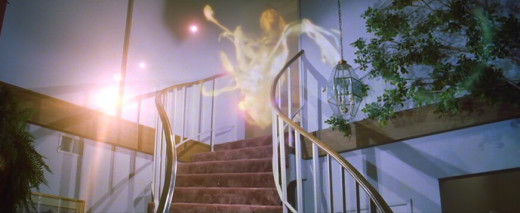
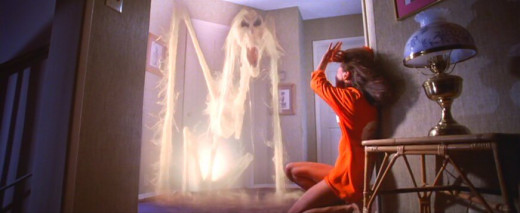
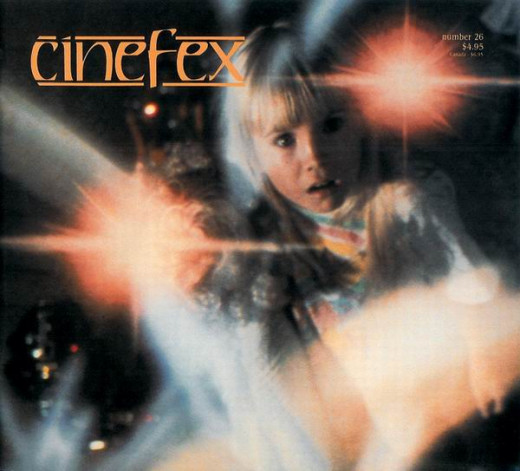
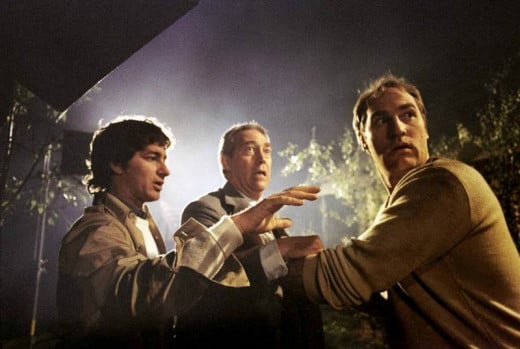
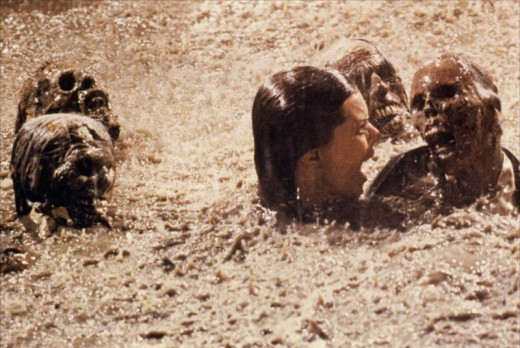
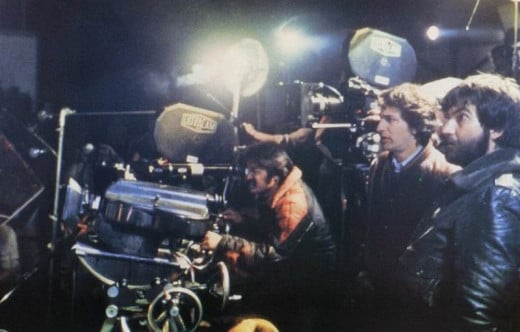
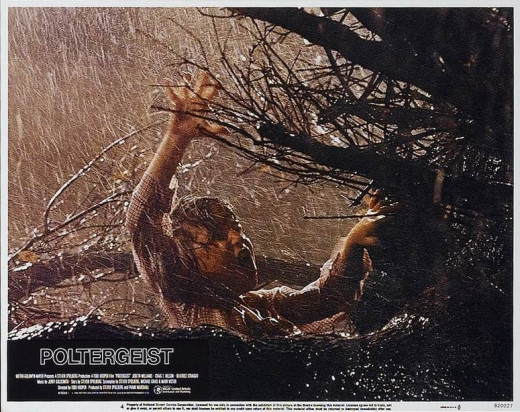
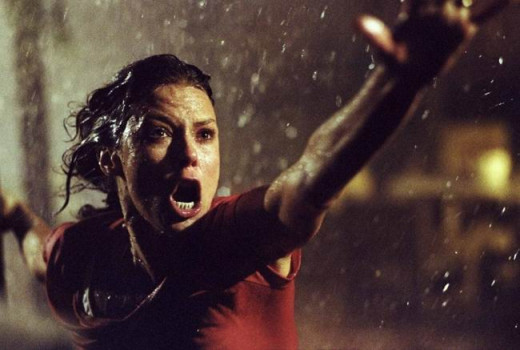
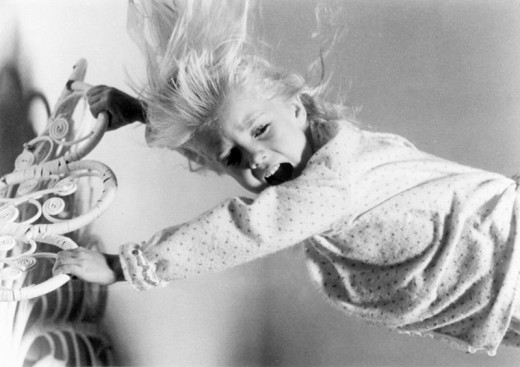
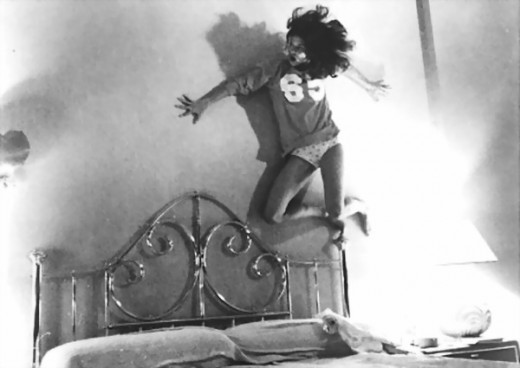
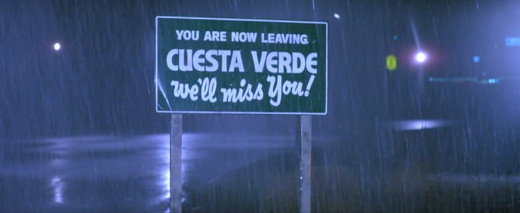
The Critics Wrote –
"Steven Spielberg's suburban gothic about a family besieged by nasty, prankish ghosts is no more than an entertaining hash designed to spook you. It's The Exorcist without morbidity, or, more exactly, it's The Amityville Horror done with insouciance and high-toned special effects. The credits indicate that Tobe Hooper is the director, but Steven Spielberg wrote the initial story, rewrote the other writers' work on the script, storyboarded the shots, produced the picture, and supervised the final edit. It appears that he also took over, in considerable part, on the set." (Pauline Kael)
"The story is truly stupid, though well-acted. Craig T. Nelson and JoBeth Williams are the parents, living almost wall-to-wall with their neighbors in a suburban development. But when the furniture starts to fly around the room and the big tree in the yard gets hungry for the kids nobody ever seems to notice. Here you have a house in the middle of the street going berserk in Dolby Stereo and nobody calls the cops. But Williams is terrific as the mother, at first amused by the strange goings-on in her kitchen and later terrified when cute little Heather O'Rourke disappears into the walls. And Zelda Rubinstein walks off with the film as the miniature lady who comes to cleanse the house." (Variety)
"This is all ridiculous, but Hooper and Spielberg hold our interest by observing the everyday rituals of this family so closely that, since the family seems real, the weird events take on a certain credibility by association. That's during the first hour of the movie. Then all hell breaks loose, and the movie begins to operate on the same plane as Alien or Altered States, as a shocking special-effects sound-and-light show. A closet seems to exist in another dimension. The swimming pool is filled with grasping, despairing forms of the undead. The search for the missing little girl involves a professional psionics expert, and a lady dwarf who specializes in "cleaning" haunted homes. Nobody ever does decide whether a poltergeist really is involved in the events in the house, or who the poltergeist may be, but if that doesn't prevent them from naming the movie 'Poltergeist' I guess it shouldn't keep us from enjoying it." (Roger Ebert)
''Poltergeist is full of creepy, crawly, slimy things that jump out from the shadows. It contains playful ghosts and mean ones. It's like a thoroughly enjoyable nightmare, one that you know that you can always wake up from, and one in which, at the end, no one has permanently been damaged. It's also witty in a fashion that Alfred Hitchcock might have appreciated. Offhand, I can't think of many other directors who could raise goose bumps by playing ''The Star-Spangled Banner'' behind a film's opening credits. There's some controversy about the individual contributions to the film made by Steven Spielberg and Tobe Hooper, best known as director of ''The Texas Chainsaw Massacre.'' I've no way of telling who did what, though ''Poltergeist'' seems much closer in spirit and sensibility to Mr. Spielberg's best films than to Mr. Hooper's." (Vincent Canby, New York Times)
